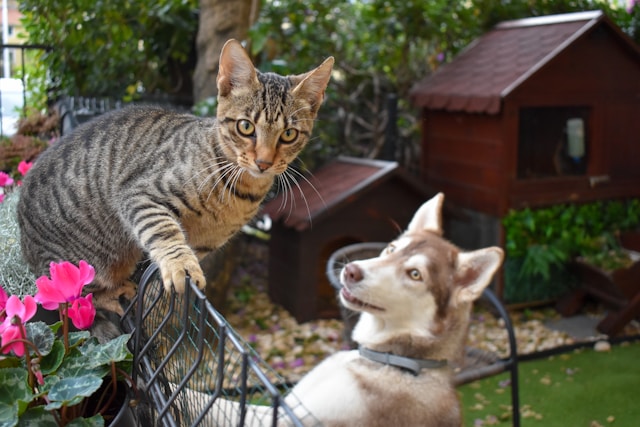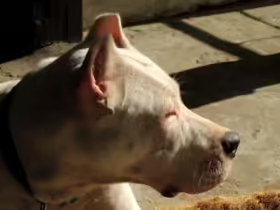As pets age, their needs and behaviors change, requiring special attention to ensure they remain comfortable and healthy. Senior cats and dogs often face unique health challenges and changes in their physical and mental well-being. Understanding these changes and adapting your care approach is crucial for maintaining their quality of life. This comprehensive guide will help you navigate the aging process for your senior pets and provide practical tips for their care.
1. Recognizing the Signs of Aging
Physical Changes
Senior pets often experience a range of physical changes:
- Decreased Mobility: Arthritis or joint issues can cause stiffness and difficulty in movement.
- Weight Changes: Weight loss or gain can indicate underlying health issues.
- Changes in Coat and Skin: Thinning fur, graying, and drier skin are common in older pets.
- Dental Issues: Senior pets are prone to dental problems, including gum disease and tooth loss.
Behavioral Changes
Behavioral changes can also occur as pets age:
- Reduced Activity: Older pets may be less active and more prone to sleeping.
- Cognitive Decline: Conditions such as canine cognitive dysfunction (similar to dementia in humans) can affect memory and behavior.
- Changes in Appetite: Altered eating habits or a decrease in appetite can signal health issues.
2. Adjusting Their Diet
Nutritional Needs
Senior pets have different nutritional requirements compared to their younger counterparts:
- Balanced Diet: Ensure that their diet is balanced and includes appropriate levels of protein, fats, and carbohydrates.
- Special Formulas: Consider senior-specific pet foods designed to meet their unique needs, such as reduced calories, added fiber, and joint-supporting nutrients.
- Weight Management: Monitor their weight and adjust food portions to maintain a healthy weight. Obesity can exacerbate joint issues and other health problems.
Feeding Strategies
- Frequent, Small Meals: Older pets may benefit from smaller, more frequent meals to accommodate changes in appetite and digestion.
- Hydration: Ensure they have constant access to fresh water, as older pets may be more prone to dehydration.
3. Managing Health Conditions
Regular Veterinary Check-Ups
Frequent vet visits are essential for senior pets:
- Routine Exams: Schedule regular check-ups to monitor their health and catch any issues early.
- Screenings: Regular blood tests and other diagnostic procedures can help detect conditions such as kidney disease, diabetes, and thyroid issues.
Managing Chronic Conditions
- Arthritis and Joint Pain: Consult your vet about pain management options, including medications, joint supplements, and physical therapy.
- Dental Health: Regular dental cleanings and home dental care are vital to prevent or manage dental issues.
4. Adapting Their Environment
Comfortable Living Space
Creating a comfortable environment is crucial for senior pets:
- Orthopedic Bedding: Provide supportive, cushioned bedding to reduce pressure on joints.
- Easy Access: Ensure that their favorite spots and essentials (food, water, litter box) are easily accessible.
Safety Modifications
- Non-Slip Flooring: Use non-slip mats or rugs on slippery floors to prevent falls.
- Accessible Entrances: Consider pet ramps or steps to help them reach higher surfaces, such as beds or sofas.
5. Enhancing Mental Stimulation
Engaging Activities
Mental stimulation is important for cognitive health:
- Interactive Toys: Use puzzle toys and treat-dispensing toys to keep their minds active.
- Training and Enrichment: Engage in gentle training exercises or activities that stimulate their senses and keep them mentally sharp.
Routine and Consistency
Maintaining a consistent routine helps reduce anxiety and confusion in senior pets:
- Structured Schedule: Keep feeding, exercise, and playtime on a regular schedule to provide stability.
- Familiar Environment: Minimize changes to their environment to avoid stress and disorientation.
6. Providing Emotional Support
Quality Time
Spend quality time with your senior pets to provide comfort and reassurance:
- Gentle Interaction: Offer gentle petting, brushing, and playtime to strengthen your bond.
- Calm Environment: Ensure their environment is calm and stress-free, minimizing loud noises and disruptions.
Monitoring Behavior
Be attentive to changes in behavior that might indicate discomfort or distress:
- Watch for Pain Signs: Look for signs of pain, such as changes in posture, vocalization, or reluctance to move.
- Emotional Changes: Be aware of any sudden changes in behavior or mood and consult your vet if needed.
7. Planning for End-of-Life Care
Discussing Options
End-of-life care is an important aspect of managing a senior pet’s quality of life:
- Palliative Care: Discuss palliative care options with your vet to manage pain and provide comfort.
- Euthanasia Decisions: When it becomes clear that your pet’s quality of life is deteriorating, discuss euthanasia options with your vet to ensure a compassionate and humane end.
Comfort and Dignity
Ensure that your pet is comfortable and surrounded by love during their final days:
- Comfort Measures: Provide a comfortable and familiar environment, and be attentive to their needs and preferences.
- Cherished Moments: Spend time with your pet and create cherished moments to comfort them and say goodbye.
8. Support Resources
Veterinary Support
Seek guidance from your veterinarian for tailored advice and support:
- Geriatric Care: Ask about geriatric care plans and resources specific to senior pets.
- Behavioral Counseling: Consult with veterinary behaviorists for help with cognitive decline or behavioral issues.
Pet Care Products
Explore products designed to enhance the quality of life for senior pets:
- Joint Supplements: Supplements like glucosamine and chondroitin can support joint health.
- Mobility Aids: Products like harnesses, slings, or ramps can assist with mobility and reduce strain.
Conclusion
Caring for senior cats and dogs requires a compassionate and informed approach. By understanding the aging process, adjusting their diet, managing health conditions, adapting their environment, and providing emotional support, you can help ensure that your aging pets remain comfortable, happy, and healthy. Regular veterinary care, attention to their needs, and a loving environment are key to providing the best possible quality of life for your senior furry companions. As they age, your ongoing support and care will make a significant difference in their well-being and happiness.











Leave a Reply